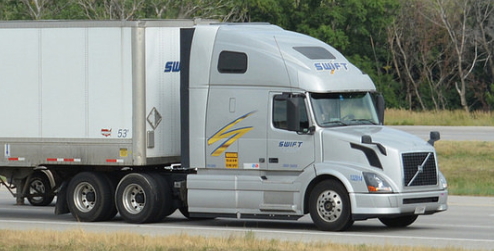
 Request FREE consultation - 1866-758-4529
Request FREE consultation - 1866-758-4529 
We have been holding trucking companies accountable for accidents involving their drivers for over three decades with incredible success. Trucking companies and their insurers are always looking for ways to avoid paying fair value for injuries caused by their drivers. One of the tactics they attempt to employ is to suggest that the truck driver was an “independent contractor,” and therefore the trucking company itself is not liable.

This article is written to cover some of the areas in which a trucking company can be held responsible for its actions or the actions of the driver.
When the driver is an actual employee of the trucking company, the company will be automatically held responsible for the driver’s negligent conduct under the doctrine of respondeat superior and also under the Federal Motor Carrier Safety Regulations.
An exception would be when the employed driver is not driving on the job or to benefit the employer at the time of the crash. If the employee is in the “course and scope” of employment at the time of the collision, the employer will be deemed to be legally responsible for their actions. With employee drivers who are on the job furthering their employer’s interest at the time of the crash, the trucking company will be responsible for their drivers’ actions.
Owner-operators are typically individuals who own and operate their own trucking businesses. An owner-operator also might lease onto a carrier as a method to operate their business under the umbrella of the trucking company. Currently, there are over 350,000 owner-operators in the United States. The vast majority of those who lease onto larger trucking companies operate under the trucking company’s DOT number.
Currently, a truck driver shortage is putting pressure on trucking companies to adequately fill open positions. Most of the companies will use the owner-operator lease method to fill their openings. The federal safety regulations ensure that the trucking company, also known as a motor carrier, remains responsible for the operation of the truck, as opposed to shifting all responsibility to the owner-operator. The safety regulations intended in this regard are to prevent the trucking company from escaping civil liability by entering into lease agreements.
If you are in an accident and the driver was a leased driver or owner-operator, the lease agreement itself should specify the ultimate responsibility and control for the truck. The FMCSA mainly places the ultimate burden on the motor carrier.
Trucking companies can also be responsible for their conduct in the area of negligent hiring or retention. In this situation, a trucking company that hires an unsafe driver can be held independently responsible for its own actions. Under the safety regulations, trucking companies must ensure that the drivers under their control are safe. The companies must also ensure that the drivers are qualified. Trucking companies must thoroughly investigate the background and safety records of the drivers they hire before putting them on the road.
If a driver proves to be unsafe after being hired by the company, the company must either terminate the employment or place them in a situation where they are not considered a professional driver for the company. These regulations are intended to protect the motoring public from unsafe drivers operating an 80,000-pound vehicle.
Motor carriers can also be held responsible for their negligence if the vehicle itself is in a dangerous condition that contributed to the crash. Trucking companies have the ultimate responsibility to ensure the safety of the trucks before they are on the highway. As the attorney for an 18-wheeler accident, we frequently encounter situations where the brakes on the big rig are in an unsafe operating condition, which is a cause of the crash.
Trucking companies must routinely inspect and repair the tractor-trailers in their fleet, including those of owner-operators. When a company cuts corners with the safety of its big rigs, it can be held accountable for its conduct, regardless of the driver’s actions.
One of the biggest factors contributing to truck accidents is the presence of a fatigued driver. Truck drivers, particularly those who are long-haul drivers, spend long hours behind the wheel and often receive inadequate sleep and rest breaks. For this reason, the safety regulations specify the maximum number of hours a truck driver can drive on any given day and week.
Because drivers are usually paid by the mile, there is every incentive for a driver to fudge on his logbooks and drive longer than he should be driving. Recently, however, the regulations have changed to require certain motor carriers to maintain digital logs, which are more difficult but not impossible to cheat.
Nevertheless, some trucking companies may be lax in their safety compliance and turn a blind eye to hours-of-service violations. Or worse, fail to supervise the driver.
A truck company can also be responsible for violations of the federal regulations in an area other than those outlined above. The federal regulations create an independent duty on the part of the motor carrier, with an emphasis on safer drivers, safer vehicles, and fewer unnecessary accidents.
Call our commercial vehicle accident lawyers for a no-obligation consultation regarding an 18-wheeler accident in Texas. We limit our cases to those involving serious injury or the loss of a loved one to provide the best possible representation to those who, unfortunately, have been in a truck wreck that was not their fault.
Related Resources: